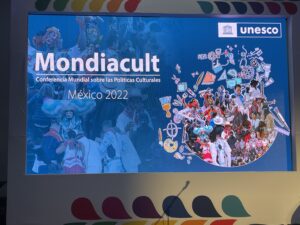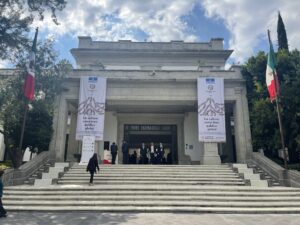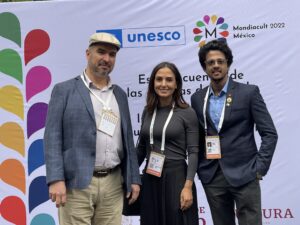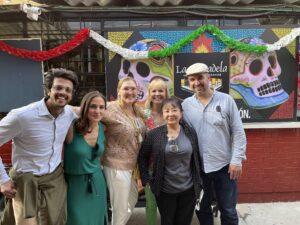 UNESCO World Conference on Cultural Policies and Sustainable Development
UNESCO World Conference on Cultural Policies and Sustainable Development
Mexico City, 28-30 September 2022
Statement of the ICH NGO Forum
Hello I’m Jorge Gustavo Caicedo of the Intangible Cultural Heritage Encyclopedia, an Accredited NGO to the 2003 Convention and member of the ICH NGO Forum I come here to deliver a Statement on behalf of the ICH NGO Forum. We are grateful for the support of the organizing committee of the World Conference on Cultural Policies and Sustainable Development, and the Authorities of Mexico for hosting this important event. We thank you for opening us a space to intervene in the Thematic Session were we address the Future of Creative Economies.
We come here to to share the importance of Intangible Cultural Heritage elements in the Creative Economy. According to the United Nations Conference on Trade and Development (UNCTAD), in 2020 the value of trade in creative products added to over 1,000 Billion dollars. Intangible cultural heritage elements participate in all categories of creative economy. In addition to categories related to recreational, cultural and tourist services, ICH is present in research and development, audiovisual productions and advertising services. However, something so essential that is present in all creative process behind each category; most of the time goes unnoticed or not explicitly quantified in its contribution, as in what its due remuneration represents. Such is the case of traditional designs, arts and crafts used in the fashion industry; or traditional stories as a source of inspiration for films, to name some examples.
The objective of exposing this is not to denounce or limit these collaborations, what we seek is to recognize, regulate and duly remunerate this relationship. Individuals, communities and groups that safeguard the elements of the intangible cultural heritage, and that also actively participate in the creative economy, do not seek to limit commercial collaboration with other industries and their Intangible Cultural Heritage. Their request is that the authorship be recognized, and that with this legal recognition all that can be marketed, be regulated. In this sense, we propose that these individuals, groups and communities be involved in the traceability of all the stages that lead to the final product. This process will validate and guarantee the due treatment of intangible cultural heritage assets. Finally, in accordance to the contribution of theses assets, a due valuation must be made in order to be duly remunerated.
A comprehensive safeguarding strategy of intangible cultural heritage requires a healthy Creative Economy. This will provide individuals, communities and groups the necessary resources to protect their natural environment. The Future of the Creative Economy must be inclusive and fair to help reduce poverty and contribute to sustainable development.
Mexico City September 29




